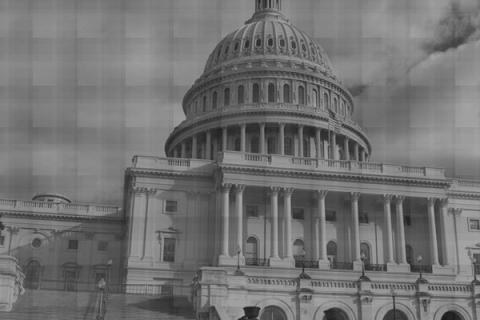
Let’s abolish marriage. Let’s divorce assumptions, commit to compromise, and acknowledge marriage for what it has become: an affair between church and state, and you’re footing their phone bill.
Marriage privatization—the idea that government shouldn’t define or authorize marriage—is far from radical. According to family expert Dr. Stephanie Coontz, marriage originally arose as a private contract between two families, and the efforts of church and state to decide which marriages are valid and which not arose relatively late in history. Now, as the same-sex marriage debate comes to a boil, we are forced to consider whether our definition of marriage is an accurate reflection of reality. Marriage privatization preserves religious convictions, respects nontraditional families, and helps the households that need it most.
Our current definition of marriage undermines most families. “Traditional” families—that is, married couples with children—now account for fewer than one in four American households. If you are one of the nontraditional households—that is, you are single, divorced, gay, raising a grandchild, raising a foster child, living with roommates, living with cats (and the list goes on)—you are subsidizing your married friends through your tax dollars.
This marriage subsidy rests on the assumption that marriage is an accurate shorthand indicator for people who need help caring for dependents. In other words, the government needs you to give a few bucks to your married friends for diapers. Never mind the fact that about half of married couples do not have children, and about half of unmarried cohabiting couples do!
Meanwhile, nontraditional families are denied many important legal and economic protections. These include hospital visitation rights, the ability to obtain “family” health coverage, taxation and inheritance rights, parenting roles, and protection if the relationship ends.
Nontraditional families shouldn’t count on the Supreme Court to fix the problem. First of all, many of these families are heterosexual couples that have chosen not to marry for personal reasons. Secondly, even if the Supreme Court declares same-sex marriage a constitutional right, culture does not always follow legal doctrine. Just as Roe v. Wade failed to settle the contentious issue of abortion, the upcoming gay marriage cases in the Supreme Court could inflame the losing side of the issue. Forty years from now, gay marriage could be the new abortion—the bitter national disagreement with no kiss-and-make-up in sight.
Marriage privatization—a uniquely bipartisan proposal—would create marriage equality through democratic means. Forty percent of Americans agree that marriage is obsolete, and a hundred percent of Americans would benefit from privatization. Conservatives would see more efficient use of taxes, greater church independence, and a shrinking government. Liberals would see marriage equality and welfare benefits for those most in need. Additionally, married folks will enjoy a purer partnership, because couples will no longer walk down the aisle incentivized by tax breaks, citizenship, or healthcare.
Like many Americans, Dr. Coontz can see the benefits of marriage privatization, but she also thinks there is a role for government in committed relationships. “Why should my ability to get healthcare depend on whether I’m married to a particular person?” she asked. “On the other hand, I do think the state has a legitimate interest in people taking care of each other, meeting their commitments, and having exit rules if they leave the relationship in which they’ve made a commitment.”
Marriage privatization can make room for limited government involvement. The state can enforce private contracts made by the couple, and default exit rules can remain available for committed, cohabiting relationships. The state could criminalize certain partnerships including incest and polygamy, the same way certain business contracts are prohibited today. The state would then be involved to the fullest extent in the parent-child relationship—generally a more enduring, provable, and need-based relationship than the parent-parent partnership.
Best of all, we would still get the estimated $9.5 billion windfall from same-sex wedding ceremonies! That doesn’t even take into account the inevitable flurry of new reality wedding shows. I’m looking at you, TLC.
Right now, the greatest barrier to marriage privatization is silence. Many people have never heard of marriage privatization, perhaps because its bipartisan nature—the very thing that makes it such a viable solution—makes it an unattractive candidate for sensationalistic politicking. Yet, marriage has evolved constantly before us. Perhaps it is just a matter of time before the majority starts talking about marriage privatization, not as a radical overhaul, but as a retrofitting of law to reality.
